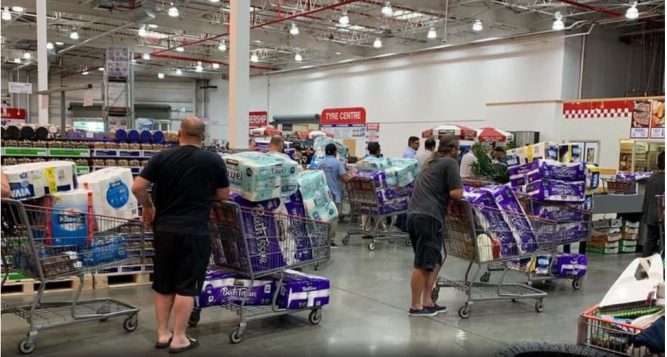If you’ve managed to stockpile a pantry full of loo roll, pasta and tinned tomatoes in the past few weeks, you’re not the only one.
Panic buying has seen supermarket shelves cleared out across the country, prompting strong words from Prime Minister Scott Morrison.
“Stop hoarding. I can’t be more blunt about it. Stop it. It is not sensible, it is not helpful and it has been one of the most disappointing things I have seen in Australian behaviour in response to this crisis,” he said firmly.
But is there a logical explanation for this behaviour – and can we get over this need to hoard and be more considerate of other shoppers?
Melissa Norberg, an Associate Professor in Psychology Macquarie University who studies hoarding disorder, and Derek Rucker, a Professor of Marketing at Northwestern University, have told The Conversation that times of uncertainty and social isolation can both psychologically motivate people to buy things they don’t need.
While stocking up on extra groceries may not be “hoarding” in the extreme sense, it’s still driven by the same psychological mechanisms – in this case, the ability of people to tolerate stress.
If it’s in a person’s nature to avoid stress, they may find it to believe the Government when they say supermarkets will stay open – or if they do believe them, they may think it’s better to “prep” just in case.
The virus also reminds people of their mortality – which can lead to increased spending to offset the fear.
But the researchers say even if a person typically feels able to handle stress, they still may end up with more in their shopping trolley because empty supermarket shelves lead us to assume items are more valuable if they are in short supply.
So, how can we make smart supermarket choices during the pandemic – even when our brains tell us to buy up?
They say the best thing you can do is to make a list of the items you already have at home and how long they will last.
When buying items, try to limit waste and be considerate – buying 100 rolls of loo paper is not practical if it’s going to take a year – or more – to use them.
The researchers also advise limiting food waste by developing meal plans for the next two to three weeks, depending on when certain products expire.
Take a shopping list with you and try to stick to it so you’re less likely to impulse buy – and be willing to purchase substitutes if items are sold out.
They add that many people who show hoarding behaviour can tolerate distress better than they think – so just remember to keep a cool head (and your hands off those 15 boxes of tissues).



